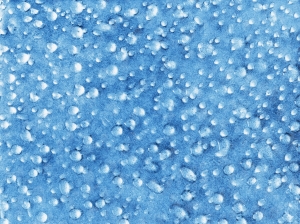By NOEL MURPHY
BARWON Health has defended a new ‘water-only’ program to cut sweet drinks in schools despite selling sugary soft drinks within its own facilities.
The fledgling scheme, enacted with Barwon Water, discourages students from brining sweet drinks to school and schools from offering them through canteens or lunch orders.
The scheme encourages school children to choose water over high-sugar drinks.
Barwon Health provides high-sugar drinks to staff and visitors from its own vending machines and canteens.
But it would remove large soft drink sizes in line with a health department initiative, a spokesperson said.
“We continue to work toward ensuring a range of healthy foods and drinks are available in our food outlets and vending machines, and reducing the availability of unhealthy food.
“Our Healthy Eating Workforce strategy has included colour labels recently being introduced to help staff and visitors to easily identify healthier food and drinks. The traffic-light system, which categorises foods into green, amber and red groups, is part of the Healthy Choices strategy developed by the Department of Health.
“The strategy also includes the removal of large soft drink sizes in vending machines and canteens and an update to internal catering to encourage staff to order more green food options.”
Barwon Water said it did not have an official water-only policy but provided water and reusable drink bottles to staff and visitors.
“Barwon Water supports the Barwon Health program and believes it is important to instill healthy behaviours at an early age,” a spokesman said.
“The corporation has been providing free drink bottles to students beginning prep for almost 20 years to help educate them about the importance of staying hydrated.”
The joint water-only school program so far includes seven schools: Ceres Primary, East Geelong Primary, Geelong Baptist College, Herne Hill Primary, Highton Primary, Nelson Park and Oberon Primary.
Barwon Health said the project complemented initiatives such as the Healthy Together Schools Achievement Program, and schools-based community programs such as Bellarine Community Health’s Port Produce initiative.
“Our data shows that 96 per cent of local primary school students only drink water at school anyway, so this is not a big change but just helps that last four per cent,” said Barwon Health’s health promotion officer, Susan Parker, who initiated the program and hoped to see it implemented across the region.









